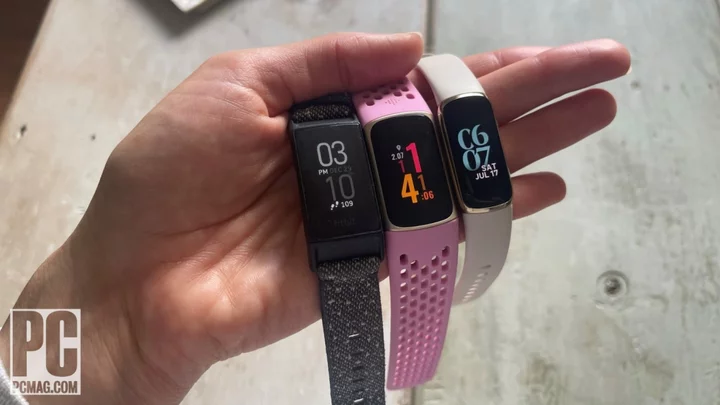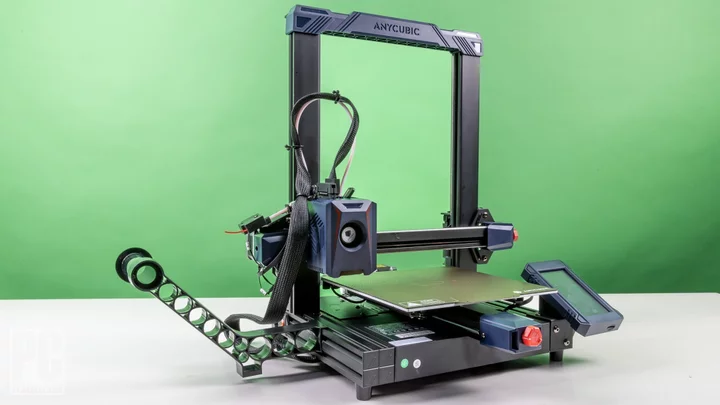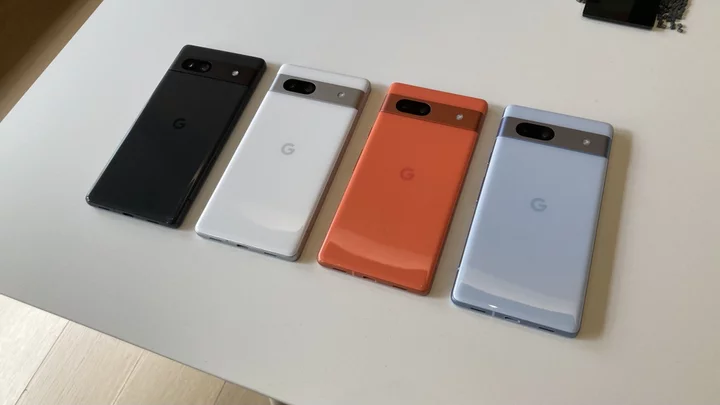There has never been a better selection of fitness trackers available, but with choice comes confusion.
Each year, we test and review dozens of models to help you find the best one for your needs and budget. We evaluate numerous factors including accuracy, battery life, ease of setup and use, features, price, specs, and style.
With so many excellent options on the market, which one is right for you? We've gathered the best models we've tested here to help you decide. Read on for our top picks, followed by what to look for when choosing a fitness tracker.
What Is the Best Fitness Tracker for the Money?
Fitness trackers range in price from $25 to $400 or more. The simplest and least expensive trackers often lack a display, so you can't check your step count unless you look at your smartphone.
More expensive trackers usually include built-in optical heart rate monitors and GPS. Often, these features are meant to tempt athletes and exercise enthusiasts. Don't get suckered into buying an expensive tracker if your primary activity is walking. If you walk and don't do much else, there are great options in the $25 to $99 range. If you work out a lot and want ample fitness-tracking features, we recommend spending at least $99 to get the tracking tools you might want or need.
With most fitness trackers, you pay one price for the device and can access all or most of its accompanying software features for free. Some, like the Whoop strap, have a different pricing model. Whoop offers its basic black wristband for free with the purchase of a membership, which unlocks access to its app. Whoop justifies its ongoing membership fees through regular app updates and timely features.
Fitbit Charge 5What Are the Different Types of Fitness Trackers?
One important question to ask yourself before choosing a fitness tracker is the type of design you want. Most trackers are wrist-based, though there are also clip-on options and fitness-tracking rings. Bracelets and watches are typically hard to lose. That said, they can get in the way of some daily activities, such as sleep and computer work, for example.
A clip-on is another option, although this style isn't nearly as popular anymore. Fitbit sells a clip for the Inspire 3 that can be helpful if the included bands don't fit, but it prevents heart rate and sleep score measurements. Clip-on devices, moreover, can fall off or accidentally end up in the wash.
The Oura Ring, meanwhile, brings health tracking to your fingers. The Oura's ability to track workouts is pretty basic compared with a wrist-worn model, but it offers comprehensive sleep tracking and is more comfortable to wear to bed than a watch or wristband.
There are also trackers for children, like the Fitbit Ace 3. And don't forget about Fido. That's right, there are even trackers specifically for pets.
The Best Fitness Tracker for Monitoring Your Heart Rate
Training intelligently means using heart rate data to guide your workouts. Sometimes you might want to keep your heart rate relatively low to burn fat or pace yourself for a longer workout. Other times you might want to push it higher for different health benefits, like building stamina.
Garmin LilyChest straps are slightly more accurate than wrist-based wearables for heart rate tracking because you wear them closer to your heart and they measure its activity directly. For comparison, the optical heart rate sensors in wrist-based fitness trackers calculate your heart rate by shining light into your skin and measuring blood flow. So, for the most precise heart rate readings, consider a dedicated chest strap. Not all smart home gym machines work seamlessly with fitness trackers, but most support chest straps like the excellent Polar H10.
The main benefit of a wrist-based heart rate tracker is that you can comfortably wear it all day long. They're more convenient than chest straps and give you a picture of your heart rate 24/7.
If you're simply interested in knowing your resting heart rate, you don't necessarily need a heart rate-tracking device to find it. Many smartphone apps let you take your heart rate in about 15 seconds via your phone's camera.
For more, see the best heart rate monitors.
The Best Fitness Tracker for Sleep
Many fitness trackers record your sleep. When they do, they generally watch for movement using a three-axis accelerometer to a more sensitive degree than they do during the day. Most devices offer graphs in their companion app that show the duration of your light, deep, and REM sleep. Some also track your overnight respiration (the number of breaths you take per minute), a feature that is available on the Apple Watch. Samsung Galaxy Watches can even track your snoring.
Sleep data from the Polar Ignite 2Some dedicated sleep trackers attach to your mattress, but we haven't found them to offer an appreciable advantage over wrist-based trackers. And wearable trackers can do a lot more than simply track your rest. But if you don't like the idea of wearing something on your wrist to bed, you can always spring for the sleep-tracking Sleep Number 360 Smart Bed or the Eight Sleep Pod Pro Cover smart mattress topper. As a more affordable option, the second-generation Nest Hub can track your sleep from the bedside table without being in contact with your body.
The Best Sport-Specific Fitness Tracker
Swimmers who want a waterproof tracker need to keep in mind that not all water-safe trackers actually record swimming data. Runners should probably pick a watch that shows time, distance, pace, and lap time, at the very least. If you want good accuracy for those metrics without also carrying a smartphone, you need a runner's watch with built-in GPS.
Venu Sq 2You also need to consider the display. If you want to view your stats at all times or simply use your tracker as a wristwatch, look for one with an always-on display. How you control the tracker is also important. If you like to run in the cold, or wear gloves, you might want to steer clear of devices that use touch-screen controls.
Cyclists have even more to consider. There's a difference between tracking how many miles you pedal and the calories you burn versus monitoring your power and cadence. If all you want is the former, a few fitness trackers support bicycling as an activity. More serious cyclists should opt for a device that pairs with additional bike equipment, like a cadence sensor, and should consider devices from sport-specific companies, like Garmin and Polar.
Which Fitness Tracker Has the Best App?
A fitness tracker's app (or website) matters because it is where you view and process the information the tracker collects. Fitbit has one of the best apps and websites we've tested. It lets you record all kinds of data, such as your weight, menstrual cycles, calories and water consumed, and stress level.
Fitbit app viewsIf you want total body analysis, look for a system that incorporates a smart bathroom scale. The Fitbit Aria Air sends your weight directly to your account, so you can't cheat the system by entering a lower number.
What's the Difference Between Fitness Trackers and Smartwatches?
Most fitness trackers have some smartwatch functionality and most smartwatches offer some fitness features. The Fitbit Versa 3 comes close to blending both worlds, but it still lags far behind the Apple Watch in terms of third-party app support.
Top to bottom: Apple Watch Series 8, Samsung Galaxy Watch 5 ProThe Apple Watch Series 8 and the Samsung Galaxy Watch 5 place more of an emphasis on health and fitness tracking than any other smartwatches we've seen. They can calculate your blood oxygen saturation (SpO2) level, take an electrocardiogram (ECG), automatically detect workouts, and track your sleep. The Apple Watch SE lacks an always-on display and a few of the advanced health sensors from the Series 8, but otherwise delivers the same winning app, fitness, and safety features for $150 less. With deep Fitbit integration, the Google Pixel Watch is another good alternative to a dedicated fitness tracker.
For a detailed comparison of all the available Apple Watches, see our story on which Apple Watch you should buy. And if you're willing to consider companies other than Apple, see our list of the best smartwatches overall, the best Samsung watches, and the best Android watches.
With so many good fitness trackers available and more promising ones on the horizon, it's hard to contain them all in just one list. We've limited our picks here to trackers that scored four stars or higher, though there are lots of other good options that might fit your needs. We update this article often, so make sure to check back for our latest recommendations. And also make sure to consult our latest fitness tracker coverage.









